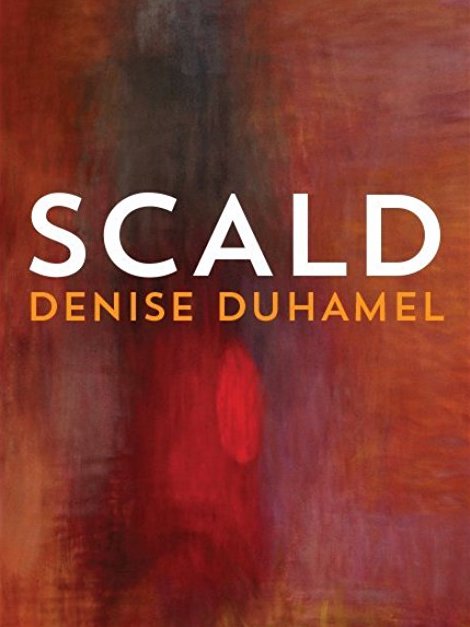- Midnight Thrift

- A New Day Has Come: A Review of Radical Hope: Letters of Love and Dissent in Dangerous Times
Celebrities, Sex, Pantoums, and Villanelles: Denise Duhamel’s Scald
Lizzie Davis

With this concept of “poetry daughters” in mind, one of Duhamel’s most touching gestures is the introduction of her own feminist forebears. These poems are the link between the women she inspires and the ones who inspire her, a kind of intergenerational love letter. The women in question? Three legendary radical feminists of the sixties and seventies: Shulamith Firestone, Andrea Dworkin, and Mary Daly. Duhamel dedicates a section of the book to each one—poet and reader alike are in good company.
But the poems in this collection are not at all limited to retreading the ground of Duhamel’s dedicatees. She does examine the deeper causes of systemic oppression and sexism, but she also detours into more commonplace issues (breastfeeding, sex, childbirth, love) as well as the kind of confessional writing that refreshes and sweetens the material, and she never skips out on the opportunity for whimsy or play. (One entire poem, “On the Occasion of Typing My First Email on a Brand-New Phone,” riffs on autocorrect’s suggestion of “Denise Richards” in place of the author’s name.)
As the most effective mothers and teachers do, Duhamel admits to the difficulties and uncertainties of her lessons. In the opening poem, “How Deep It Goes,” the reader travels alongside the poet’s rapidly firing synapses in a series of three-line stanzas dotted with the phrase “which leads me to.” She moves from foot binding in China to the Enlightenment, from Quakers and Stoics to birth control, pop androgyny, and AIDS—the evils of the patriarchy know no bounds, so why should the content in these poems? Phrasal repetitions, along with snippets of text from Firestone’s legendary Dialectic of Sex, give the poem a rhythm and structure so that even in its breadth it never feels aimless, instead building momentum until it arrives at a line that makes clear the reader’s own participation in the landscape of sexism: “which leads me— / If that’s how deep it goes / do you want to know?—to you.”
Alongside the boundlessness of content, there is a boundlessness of form. Duhamel plays with pantoums and villanelles, configurations that, with their repetitive structures and refrains, serve to reflect the cyclical and inescapable nature of the issues Duhamel addresses. “Safety Pantoum” opens with, “The ones who save us are the ones killing us. / Religion, corporations, the military, and cops.” The form’s prescribed repetitions of line yield surprising results while evoking the relentlessness of everything from hot flashes and night sweats to the military industrial complex and the coloring agent in Coke.
Other forms are invented ones: “Porn Poem,” braids a list of imagined varieties of porn (“goldfish porn/applesauce porn . . . blinking pink neon kink”) with lines from Andrea Dworkin’s “Pornography Happens to Women” (“Constitutionally protecting pornography as if it were speech means that there is a new way in which we are legally chattel.”) In “Rated R,” the language surrounding movie ratings incites play with real and imagined situations that restrict the speaker and others: “Restricted for Language” begins with the line, “Of course, I can never really say what I want to say because language itself is a straitjacket.” These dreamed-up poetic shapes give the collection texture and highlight Duhamel’s formal ingenuity.
The poems that make up Scald are overtly political and socially critical, yes, but their most delicious subversion is in their delivery: frankness and its accompanying joy. There’s a liberation in that kind of candor; it surfaces in lines like “I want to fornicate” or “For a time / I was even a wife / which felt a bit like decades at a costume party.” While these poems are clever, they staunchly refuse to hide truth behind lyricism, to mask righteous anger in artfulness. Perhaps that’s part of the lesson, one Duhamel wants her “poetry daughters” to learn by example: it’s OK to be bold, to be brave, to be honest, in verse and also in life.
Lizzie Davis is a writer, editor at Coffee House Press, and literary translator from Spanish and Italian to English.









